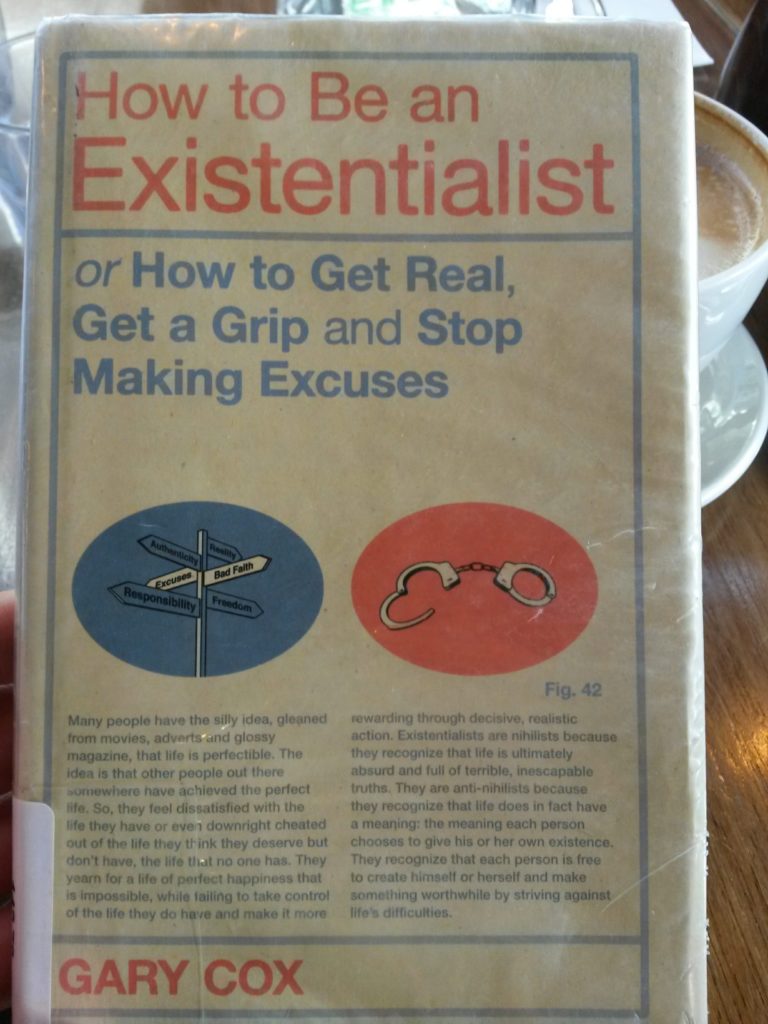
Some people think being an existentialist means spending your time brooding in cafés. Most people have no idea at all what it means. This book will explain what existentialism is, where it came from, and how to do it. You could call it “Existentialism for Fun and Profit”, except neither fun nor profit are really part of the existentialist programme.
Existentialism says, amongst other things, that there is no inherent meaning or purpose in life: it’s all completely contingent and arbitrary. Now, you might think that that’s a bad thing. But actually it’s good: since we have free will, we are therefore free to create our own meaning for our own lives.
Gary Cox’s take on existentialism in this book is a fun read. He tells it the way he sees it — his tone is casual, a bit humorous, but always direct. It’s mostly easy to read, but still weighty. You could definitely re-read this book repeatedly, as I would if I hadn’t left my copy on a bus.
Existentialism shares a lot of ideas and outlook with Buddhism. For example, “life is suffering”. Neither philosophy is a barrel of laughs, but I think they offer a lot of practical guidance in how to live a good life.